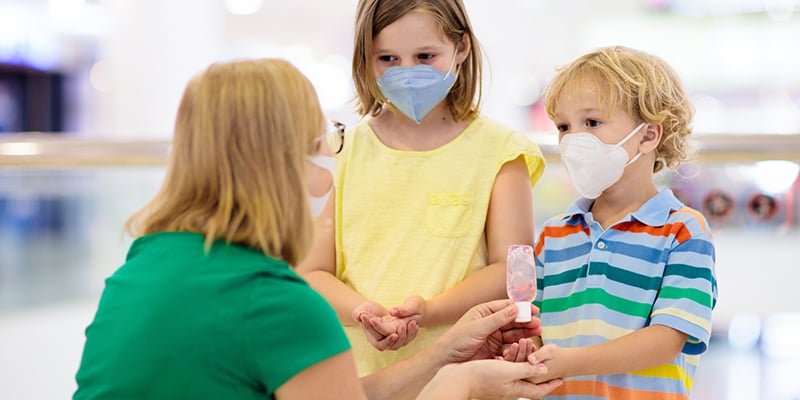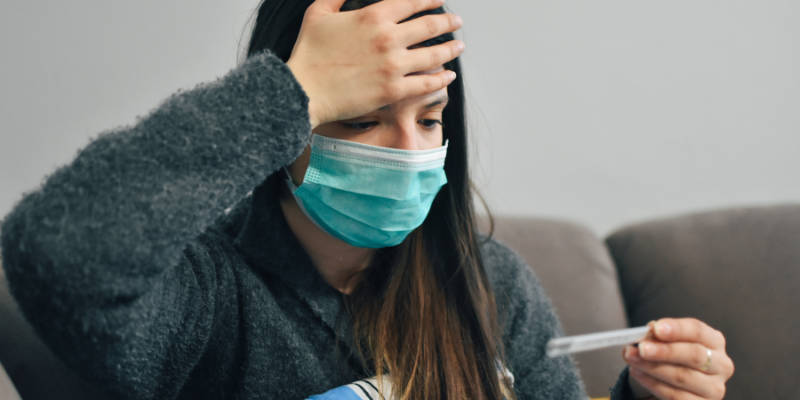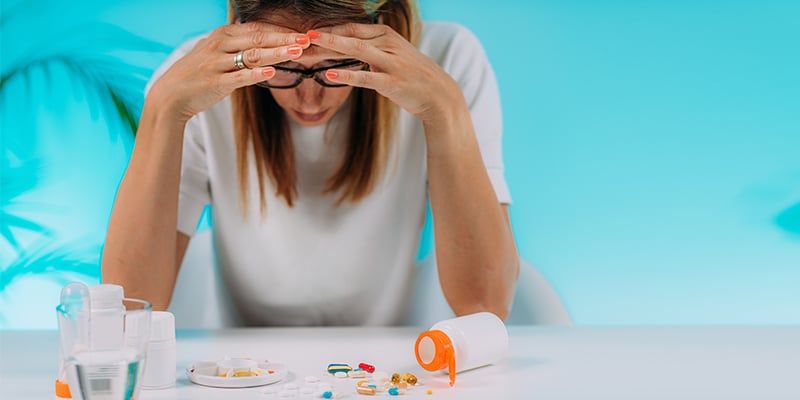
By Eboni Cornish, MD
Unfortunately, we do not have a cure or vaccination for COVID-19 at this time. It is continuing to spread, with over 1 million active cases of coronavirus in the U.S., according to the Centers for Disease Control (CDC). Although much of the media attention has focused on the elderly and those with underlying health conditions as the most at risk, we are still learning about its effects on children.
How COVID-19 is Affecting Kids
The evidence of pediatric complications of COVID-19 is newly emerging, and there are increased reports of children with Pediatric Inflammatory Multisystemic Syndrome (PIMS). As of May 7, 2020, at least 85 children have developed PIMS. This COVID-19 linked illness is associated with a high level of severe inflammation and can mirror symptoms of other inflammatory illnesses such as toxic shock syndrome and Kawasaki disease. Symptoms include high fevers, rash, red eyes, severe diarrhea, and possible complications with the cardiovascular system.
As states start to re-open, it is imperative that we have an enhanced focus on the immune system of our children. Our society is going to be exposed to a new normal, unlike anything we have ever experienced.
11 Ways to Protect Your Children
Here are some things you can do:
1. Stay aware and get involved.
As schools open up, we have to remind ourselves to remain cautious. Form a positive relationship with the staff at your children’s school and stay informed.
2. Steer clear of sick children.
Avoid close contact with any students that have cold or flu-like symptoms.
3. Encourage your children to have good hygiene.
Teach them to wash their hands for at least 20 seconds, especially after blowing their nose, coughing, or sneezing; after going to the bathroom; and before eating. They can time this by singing the song “Happy Birthday” twice while washing in the sink. Also, teach your children the proper way to sneeze by covering their mouth and nose with a flexed elbow.
4. Keep a watchful eye.
Monitor your children for any signs of excess fatigue, diarrhea, fever, or any other complaints. Have a very low threshold when it comes to calling your pediatrician regarding adverse symptoms in your children.
5. Clean high-touch areas.
Be sure to wipe down surfaces, such as tables, countertops, and doorknobs.
6. Keep a change of clothes on hand.
Consider having your child change clothes and shower after visiting any locations where more than 10 people are gathered.
7. Fuel up with healthy foods.
Children should eat at least 5 servings of fruits and vegetables per day. Try to introduce a vegetable with each meal. And consider introducing morning fruit smoothies in your child’s daily routine. If you have a picky eater, try to find healthier alternatives that are similar to their favorite food.
8. Wear masks.
COVID-19 is highly contagious and children should take the same precautions as adults. The CDC recommends that children 2 years and older should wear a cloth face covering over their nose and mouth when in public settings where it’s difficult to practice physical distancing. This is an additional public health measure people should take to reduce the spread of COVID-19 in addition to (not instead of) the other everyday preventive actions listed above. Do not place cloth face covering on children younger than 2 because of the danger of suffocation.
9. Continue physical distancing.
Try to avoid unnecessary play dates.
10. Wipe down infant toys frequently.
Babies are prone to put their hands and mouths on anything in their grasp. It is important that we minimize their exposure to contaminated items.
11. Wash using hot water.
Launder items using the warmest appropriate setting for the item and dry items immediately.
In summary, we now have evidence that COVID-19 can cause serious complications in our children. Let us not ignore the research. This is a new virus and we are still learning about it. We must remember that children are vulnerable to this disease.
Let’s focus on keeping our children safe.
About the Author: Eboni Cornish, MD, Amen Clinics Washington D.C.
Dr. Eboni Cornish is an integrative/functional medicine physician with a special interest in infectious diseases at Amen Clinics. She is a board member of the International Lyme and Associated Diseases Educational Foundation which is responsible for training numerous physicians on the treatment of Lyme Disease and other tick-borne infections. Dr. Cornish’s approach to the treatment of chronic disease is to find the root cause of a person’s health problems by performing a comprehensive evaluation of the body’s various biological systems and taking an approach based on integrative strategies of healing.
Depression, anxiety, panic attacks, and other mental health issues can’t wait. During these uncertain times, your mental well-being is more important than ever, and waiting to get treatment until the pandemic is over is likely to make your symptoms worsen over time.
At Amen Clinics, we’re here for you. We offer mental telehealth, remote clinical evaluations, and video therapy for adults, children, and couples, as well as in-clinic brain scanning to help our patients. Find out more by speaking to a specialist today at 888-288-9834. If all our specialists are busy helping others, you can also schedule a time to talk.





No Comments »
No comments yet.
RSS feed for comments on this post.
Leave a comment